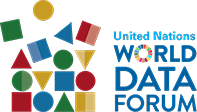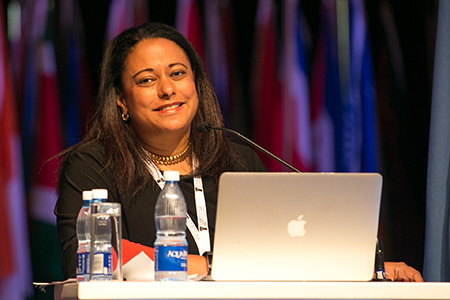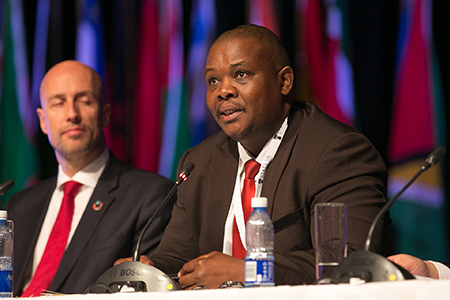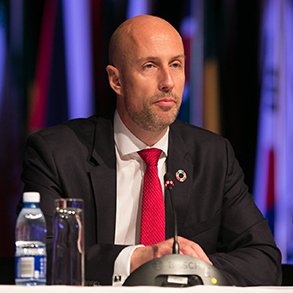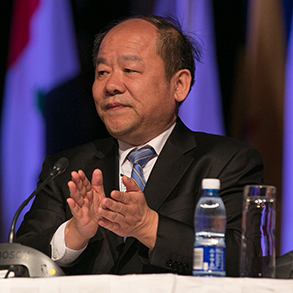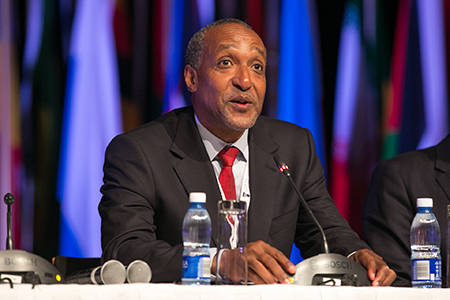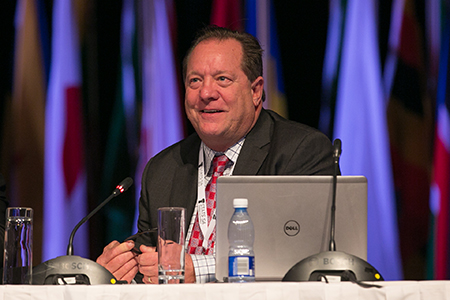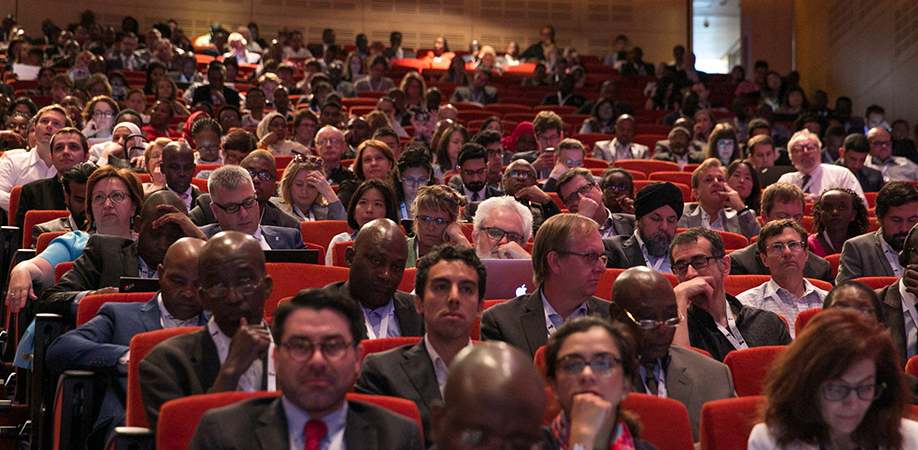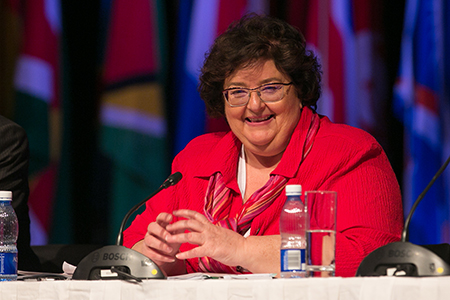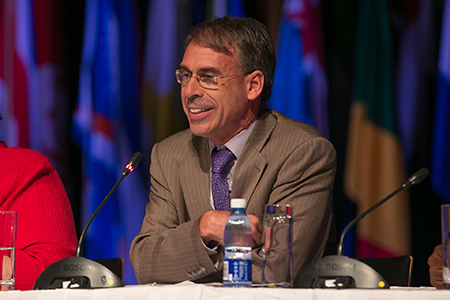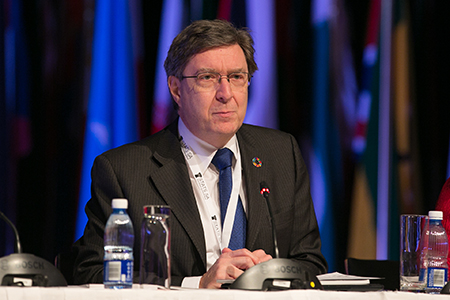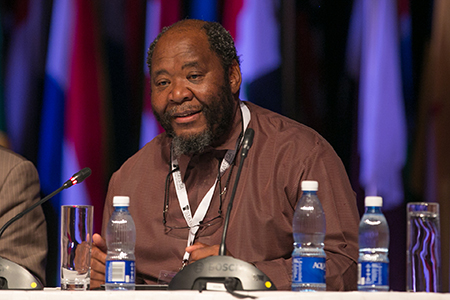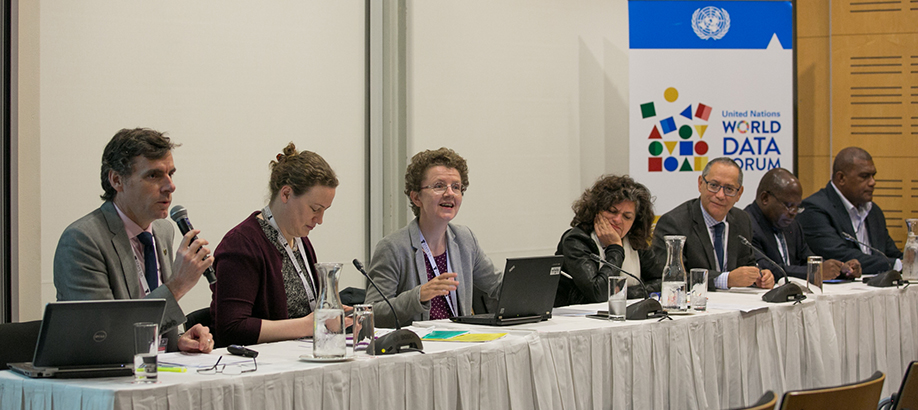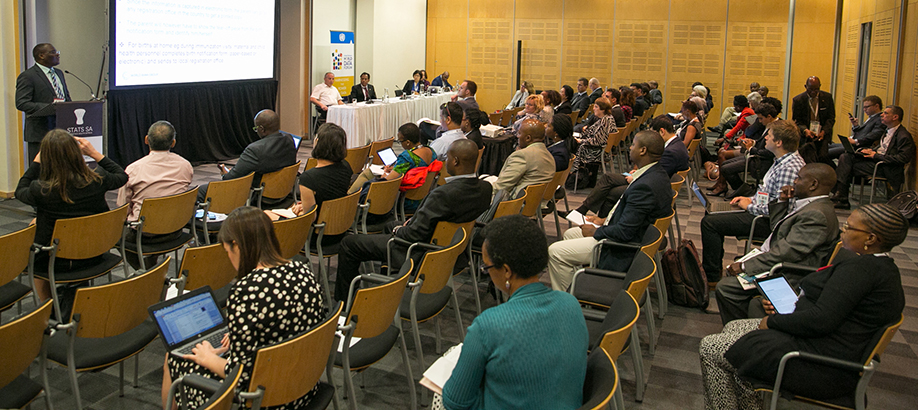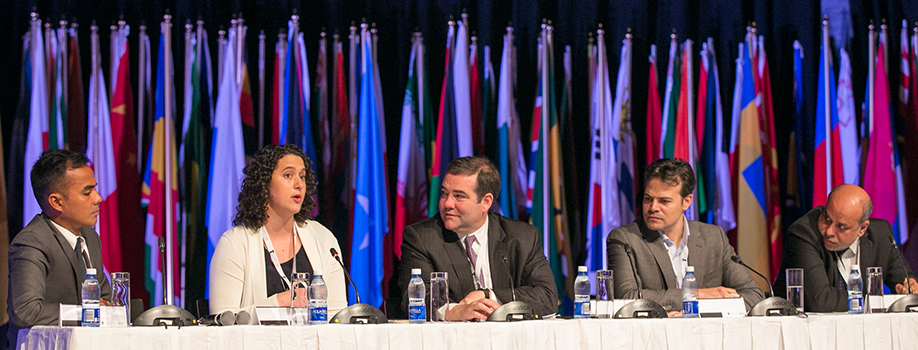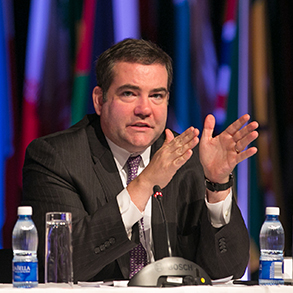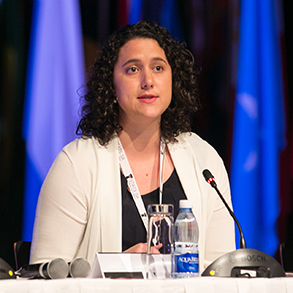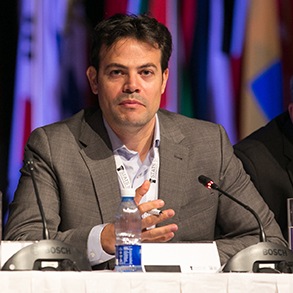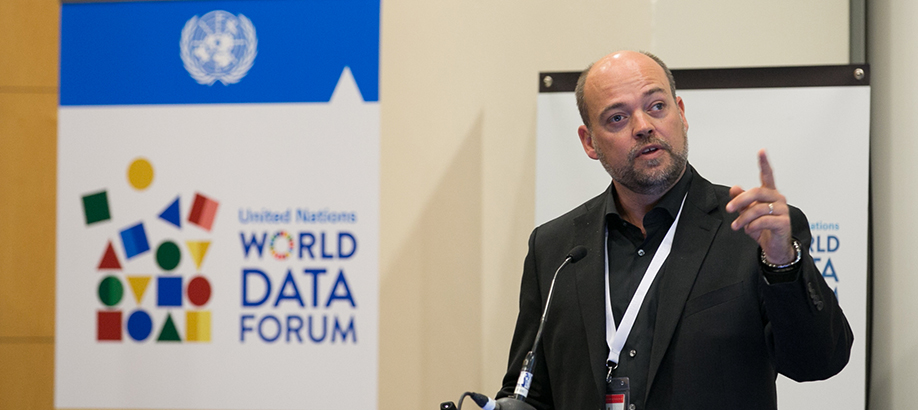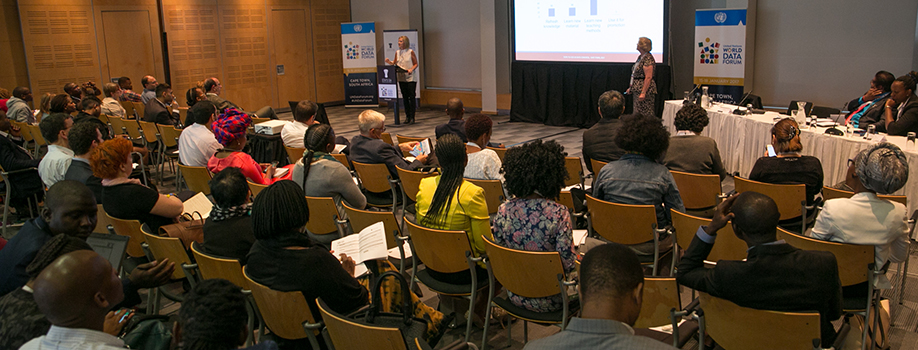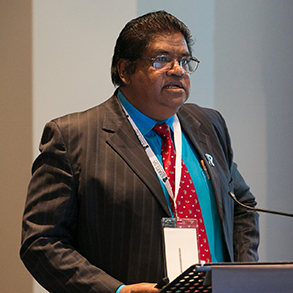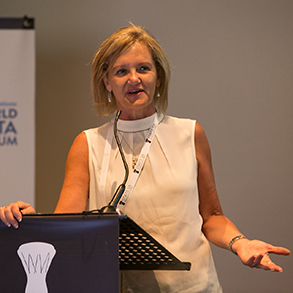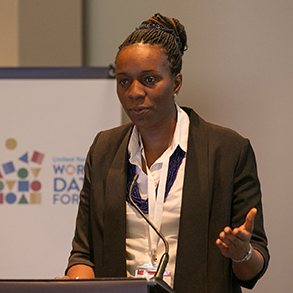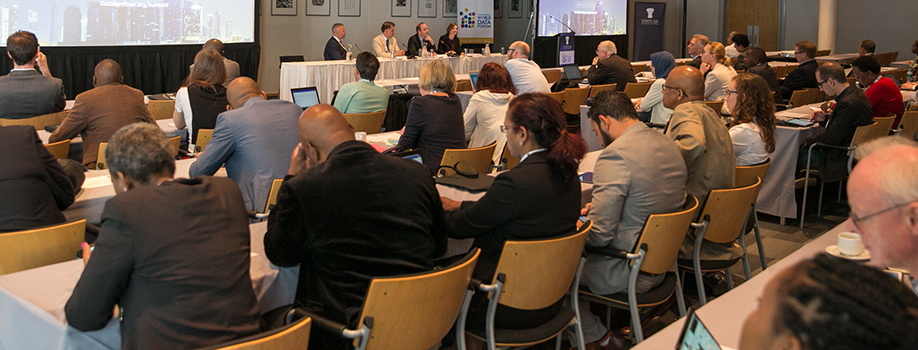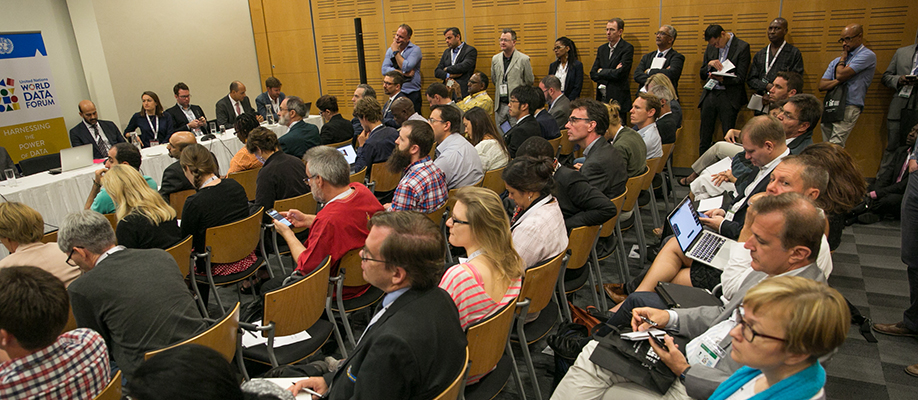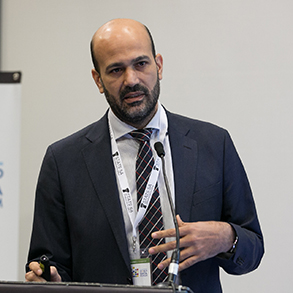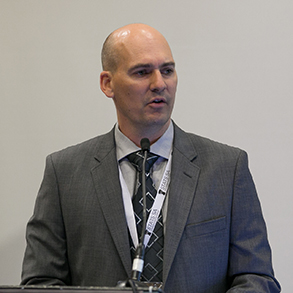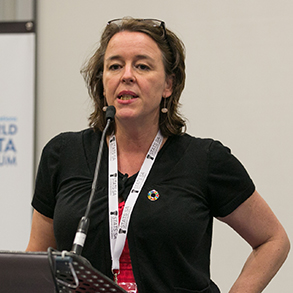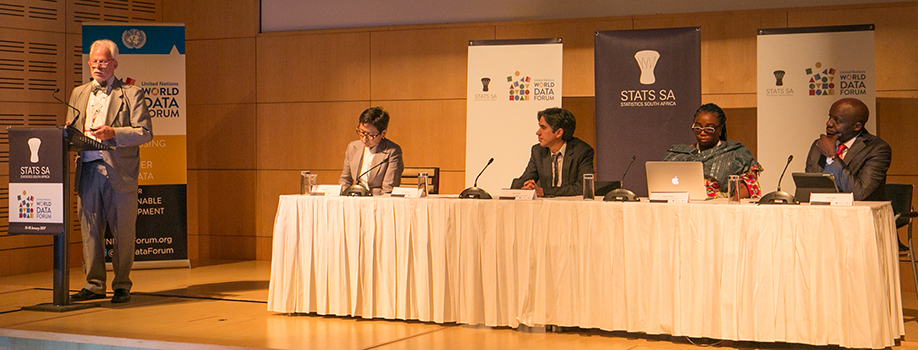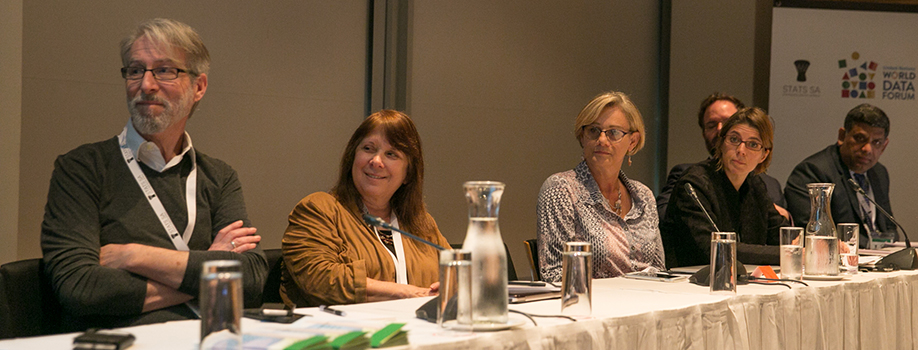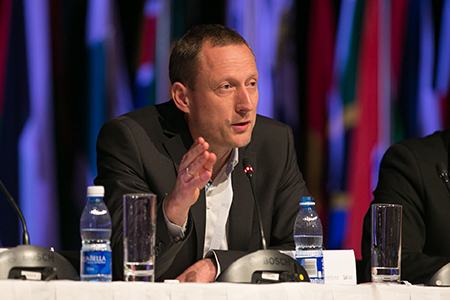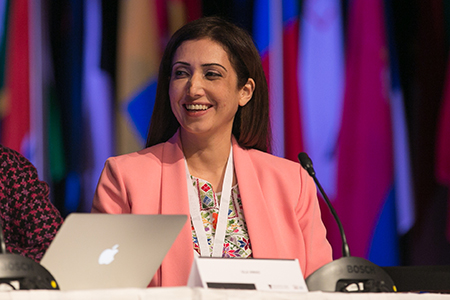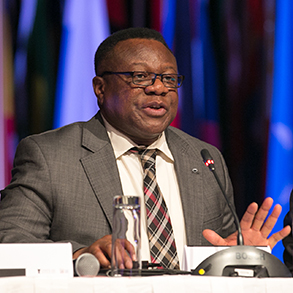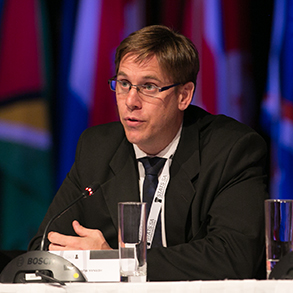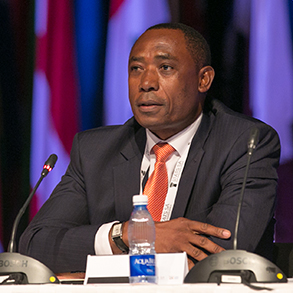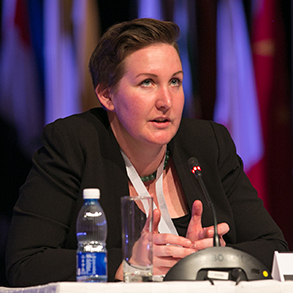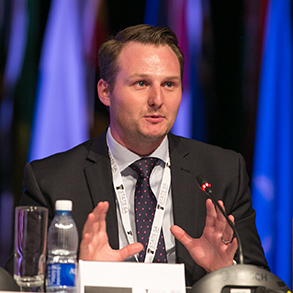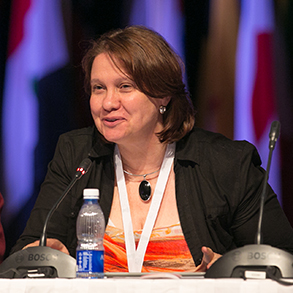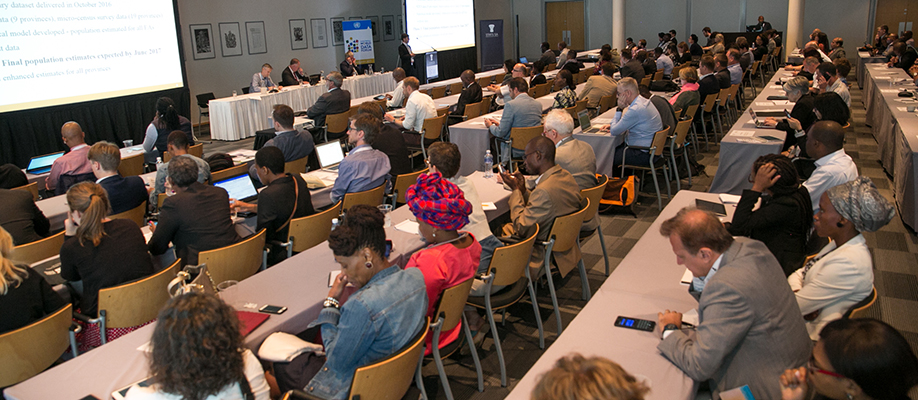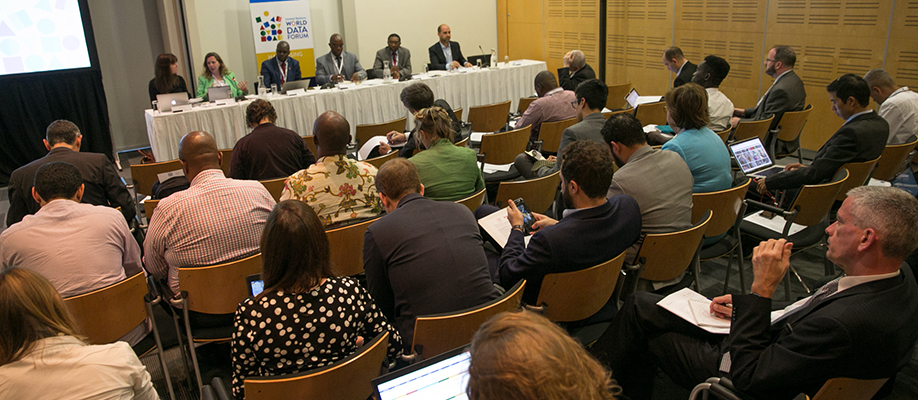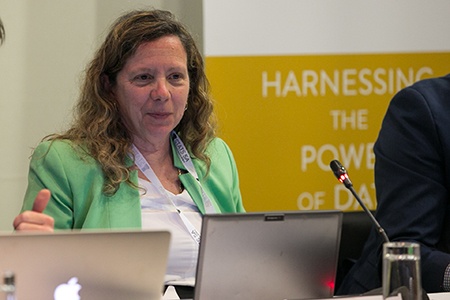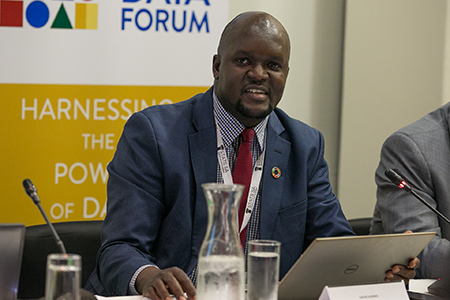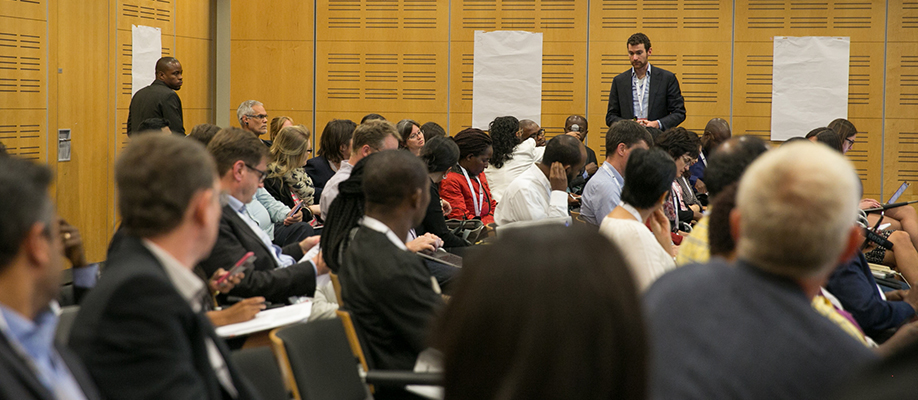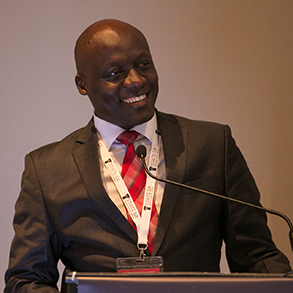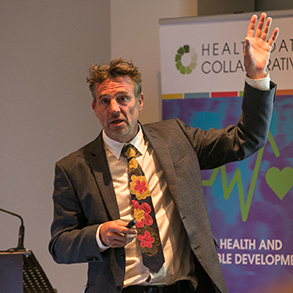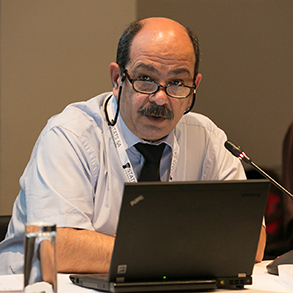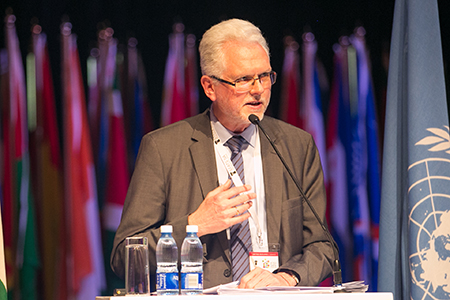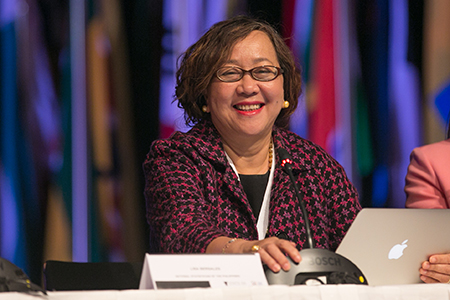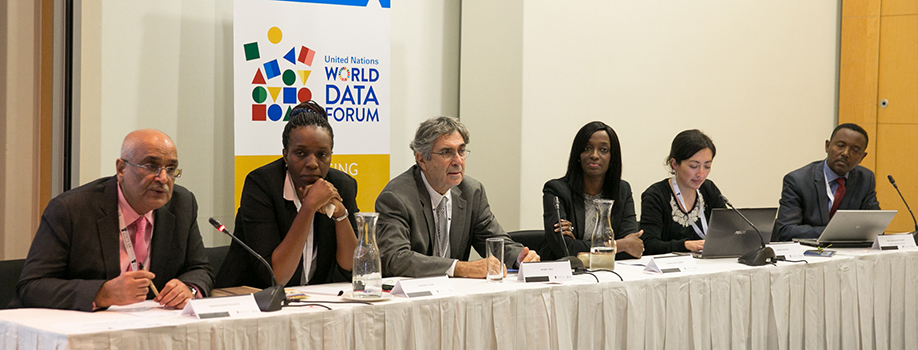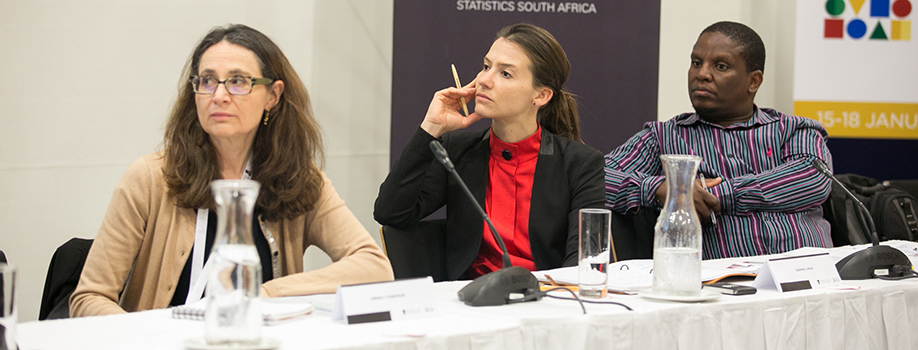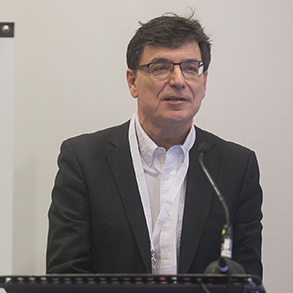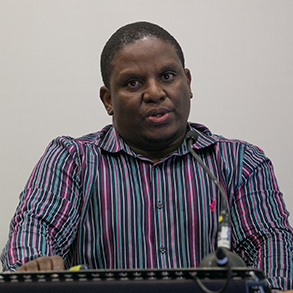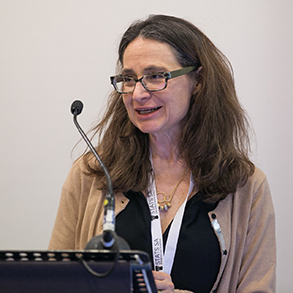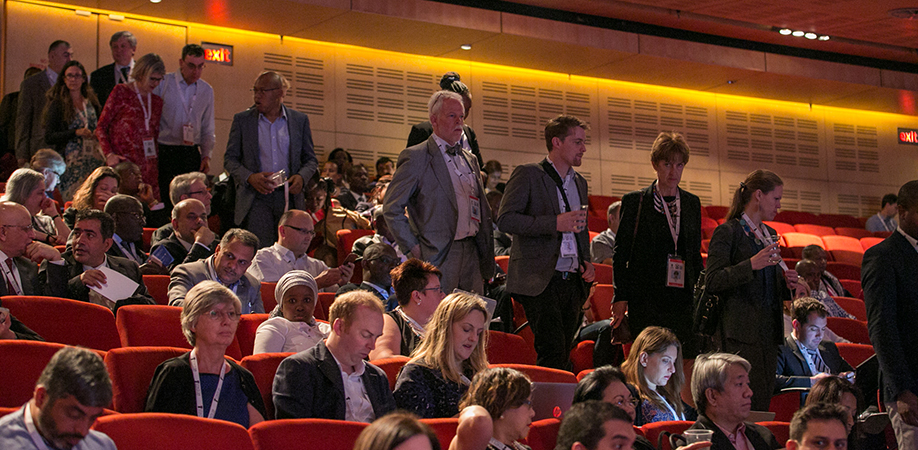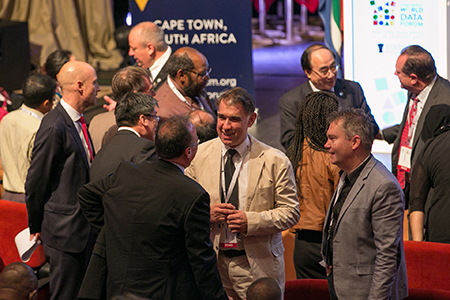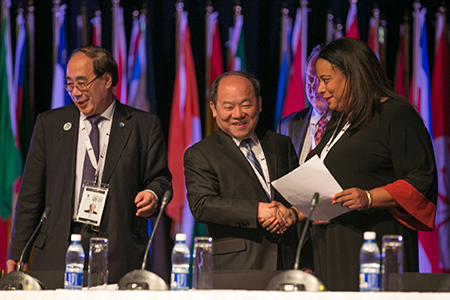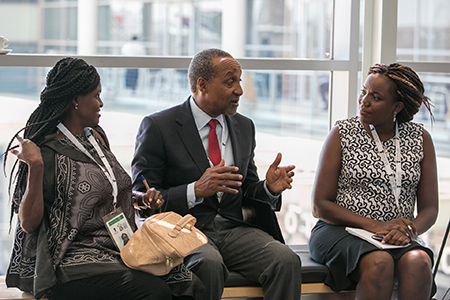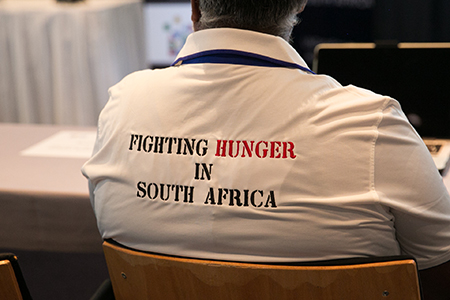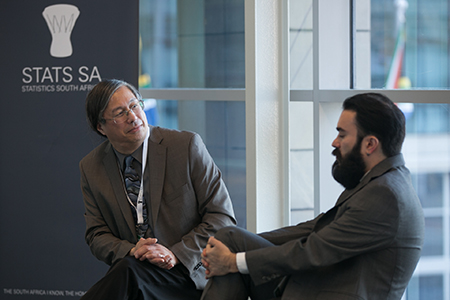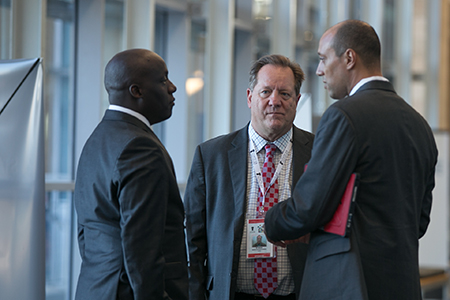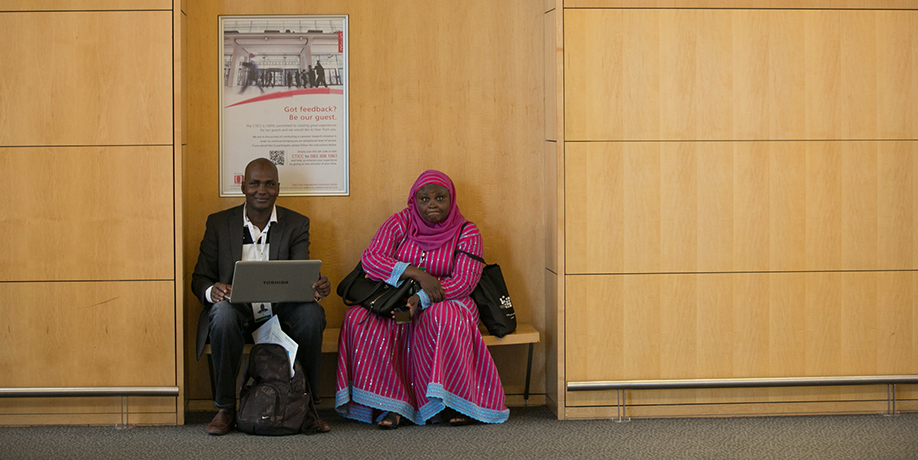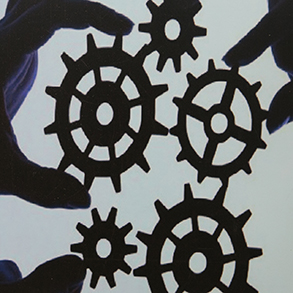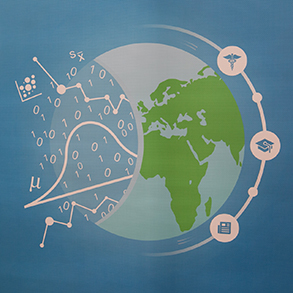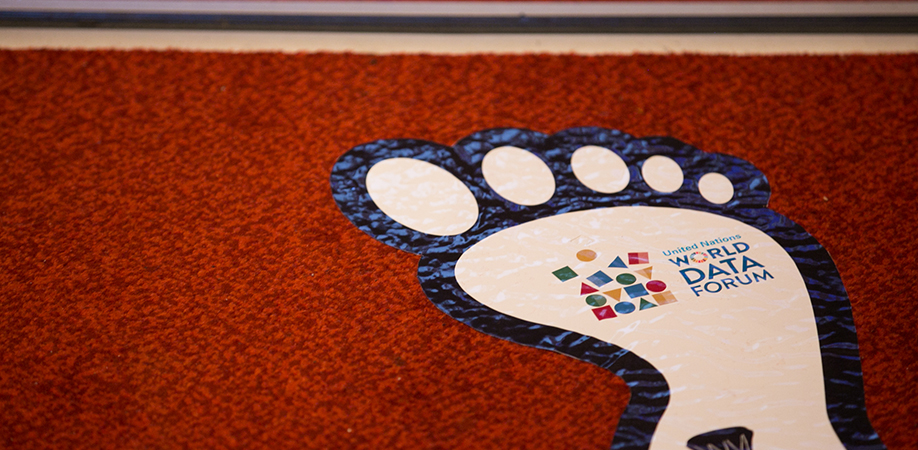Summary
Opening the first panel of the UN World Data Forum on Monday morning, 16 January 2017, Wu Hongbo, Under-Secretary-General, UN DESA, said the Forum provides a space to create mechanisms that will intensify cooperation on data and statistics across the different spheres where it is generated and used. Amb. Macharia Kamau, Special Envoy for the President of the UN General Assembly (UNGA), on behalf of UNGA President Peter Thomson, underlined the need to: deliver data for sustainable actions to achieve the Sustainable Development Goals (SDGs); engage reliable providers and producers of data on SDG implementation; and use disaggregated data to address inequalities and ensure no one is left behind.
Other speakers during the morning session shared experiences from South Africa, China and Hungary, and discussed how geographical information systems (GIS) can provide a framework for organizing SDG data. Enrico Giovannini, Co-Chair, Independent Expert Advisory Group on the Data Revolution for Sustainable Development, urged participants to increase the pace of collecting and analyzing data, as the current pace is not sufficient to address the SDGs and lags behind the work being done by private sector institutions. Stefan Schweinfest, Director, Statistics Division, UN DESA, underscored the need for rules and principles in this new “national data architecture” to support national-level decision making. Pali Lehohla, Statistician-General, South Africa, stressed that data are a public good and called for: coordination through standardization; the separation of property interests from data manipulation; and legislative reform that takes into account the SDGs.
Participants proceeded to engage in 26 parallel panels throughout the day, as well as a panel during which the Forum theme of “New approaches to capacity development for better data” was introduced. The Forum’s other themes are: Innovations and synergies across different data ecosystems; Leaving no one behind; Understanding the world through data; Data principles and governance; and The way forward: a Global Action Plan for data.
IISD Reporting Services, through its ENB+ Meeting Coverage, provided daily web coverage and a summary report from the 1st UN World Data Forum. Our summary report is available in HTML and PDF format.
Photos by IISD/ENB | Kiara Worth
For photo reprint permissions, please follow instructions at our Attribution Regulations for Meeting Photo Usage Page.
Opening Plenary
Panel speakers during the opening plenary
Teresa Clarke, CEO, Africa.com
Jacob Mamabolo, Gauteng Department of Human Settlements and Co-operative Governance and Traditional Affairs, South Africa
Michael Gerber, Ambassador and Special Envoy for Global Sustainable Development, Swiss Federal Council
Wu Hongbo, Under-Secretary-General, UN Department of Economic and Social Affairs (UNDESA)
Ning Jizhe, Commissioner, National Bureau of Statistics, China
Macharia Kamau, Special Envoy for the President of the UN General Assembly (UNGA), on behalf of UNGA President Peter Thomson
Clint Brown, Esri
Delegates during the session
Gabriella Vukovich, President, Hungarian Central Statistical Office
Stefan Schweinfest, Director, Statistics Division, UNDESA
Enrico Giovannini, Independent Expert Advisory Group on the Data Revolution for Sustainable Development
Pali Lehohla, Statistician-General, Statistics South Africa
Morning Breakout Sessions
Panel speakers during the session on 'Aligning 2015 agreements through multi-purpose disaster-related data and statistics'
Session on 'Innovations in linking civil registration and vital statistics (CRVS) and identity management systems for monitoring the Sustainable Development Goals (SDGs) and national development plans'
Panel speakers during the session on 'Big data innovations'
Daniel Runde, Center for Strategic and International Studies (CSIS)
Mallory Solder, Advanced Analytics Manager, United Parcel Service (UPS)
Juan Murillo Arias, Territorial Analysis Manager, BBVA Data and Analytics
Marco Merens, Integrated Aviation Analysis, International Civil Aviation Organization (ICAO) Air Navigation Bureau, speaks during the session on 'Data in the cloud: An ICAO Use Case with Amazon Web Services (AWS)'
Session on 'Data literacy: What, Why and How?'
Arulsivanathan Naidoo, Statistics South Africa
Delia North, School of Mathematics, Statistics and Computer Science, University of KwaZulu-Natal, South Africa
Blandina Kilama, Policy Research for Development (REPOA), Tanzania
Session on 'Public-partnership approaches to sharing government and business data to enable effective decision making towards the SDGs'
Session on 'State of the art in data visualizations and dashboards to support the 2030 Agenda'
Rafik Mahjoubi, African Development Bank (AfDB)
Fanie le Roux, Moyo Business Advisory
Alexandra Silfverstolpe, Founder and Managing Director, Data Act Lab
Session on 'Open data and national statistics: challenges and opportunities in a changing data ecosystem'
Panel speakers during the session on 'Collecting disability data toward implementing the SDGs and the Convention on the Rights of Persons with Disabilities'
Main Plenary
Panel speakers during the main plenary
Johannes Jütting, Partnership in Statistics for Development in the 21st Century (PARIS21)
Ola Awad, Palestinian Central Bureau of Statistics
Emmanuel Nnadozie, African Capacity Building Foundation
Hernán Muñoz, National Statistics and Censuses Institute (INDEC), Argentina
Oliver Chinganya, African Centre for Statistics, UN Economic Commission for Africa (UNECA)
Afternoon Breakout Sessions
Panel speakers for the session on 'Human Rights in the work of statisticians: integrating human rights with data collection and dissemination'
Erica Potts, Office of the UN High Commissioner for Human Rights (UN OHCR)
Brad Petry, Victorian Department of Justice and Regulation, Australia
Isabel Schmidt, Statistics South Africa
Session on 'Geospatial and remote sensing data for sustainable development applications'
Session on 'Data ecosystems, coordination and stakeholder engagement'
Sylvie Michaud, Statistics Canada
Davis Adieno, DataShift Senior Advisor, World Alliance for Citizen Participation (CIVICUS)
Session on 'Collective curriculum to make civil society data literate'
Panel speakers for the session on 'Strengthening capacity for health related statistics in the SDG era: the Health Data Collaborative'
Philip Thigo, Co-Founder and Executive Director, InfoNET
Alistair Robb, World Health Organization (WHO)
Attila Hancioglu, Data and Analytics Section, UN Children's Fund (UNICEF)
Panel speakers for the session on 'Using data to understand people’s values, priorities and desires'
Panel speakers for the session on the 'Use of adminsitrative data for statistics'
Jørgen Elmeskov, Director, Statistics Denmark
Lisa Bersales, Director, Philippine Statistics Authority (PSA)
Panel speakers for the session on 'Unpacking the data revolution at the country level: lessons for national data strategies'
Panel speakers for the session on 'Recent initiatives to improve capacity on migration and refugee statistics'
Frank Laczko, Director, Global Migration Data Analysis Centre (GMDAC)
Sandile Simelane, Statistics South Africa
Kimberly Roberson, Senior Durable Solutions Officer, UN High Commission for Human Rights (UNHCR)
Around the Venue
Delegates arrive for the opening plenary
Dignitaries speak informally
Ning Jizhe, Commissioner, National Bureau of Statistics, China, speaks with Teresa Clarke, CEO, Africa.com
Macharia Kamau, Special Envoy for the President of the UNGA, speaks with delegates
A delegate attending the meeting
Delegates between sessions
